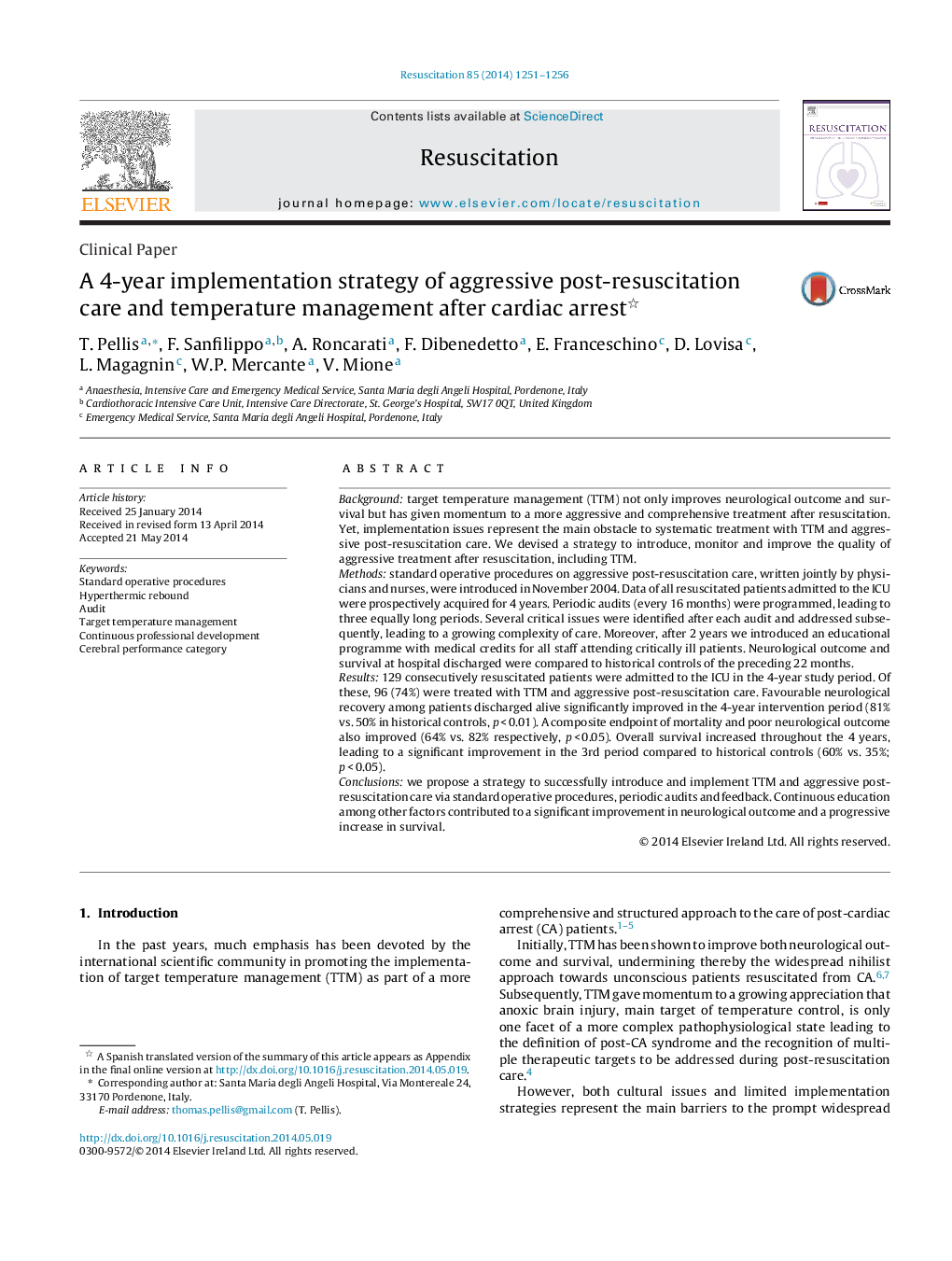| کد مقاله | کد نشریه | سال انتشار | مقاله انگلیسی | نسخه تمام متن |
|---|---|---|---|---|
| 5998260 | 1181438 | 2014 | 6 صفحه PDF | دانلود رایگان |

Backgroundtarget temperature management (TTM) not only improves neurological outcome and survival but has given momentum to a more aggressive and comprehensive treatment after resuscitation. Yet, implementation issues represent the main obstacle to systematic treatment with TTM and aggressive post-resuscitation care. We devised a strategy to introduce, monitor and improve the quality of aggressive treatment after resuscitation, including TTM.Methodsstandard operative procedures on aggressive post-resuscitation care, written jointly by physicians and nurses, were introduced in November 2004. Data of all resuscitated patients admitted to the ICU were prospectively acquired for 4 years. Periodic audits (every 16 months) were programmed, leading to three equally long periods. Several critical issues were identified after each audit and addressed subsequently, leading to a growing complexity of care. Moreover, after 2 years we introduced an educational programme with medical credits for all staff attending critically ill patients. Neurological outcome and survival at hospital discharged were compared to historical controls of the preceding 22 months.Results129 consecutively resuscitated patients were admitted to the ICU in the 4-year study period. Of these, 96 (74%) were treated with TTM and aggressive post-resuscitation care. Favourable neurological recovery among patients discharged alive significantly improved in the 4-year intervention period (81% vs. 50% in historical controls, p < 0.01). A composite endpoint of mortality and poor neurological outcome also improved (64% vs. 82% respectively, p < 0.05). Overall survival increased throughout the 4 years, leading to a significant improvement in the 3rd period compared to historical controls (60% vs. 35%; p < 0.05).Conclusionswe propose a strategy to successfully introduce and implement TTM and aggressive post-resuscitation care via standard operative procedures, periodic audits and feedback. Continuous education among other factors contributed to a significant improvement in neurological outcome and a progressive increase in survival.
Journal: Resuscitation - Volume 85, Issue 9, September 2014, Pages 1251-1256